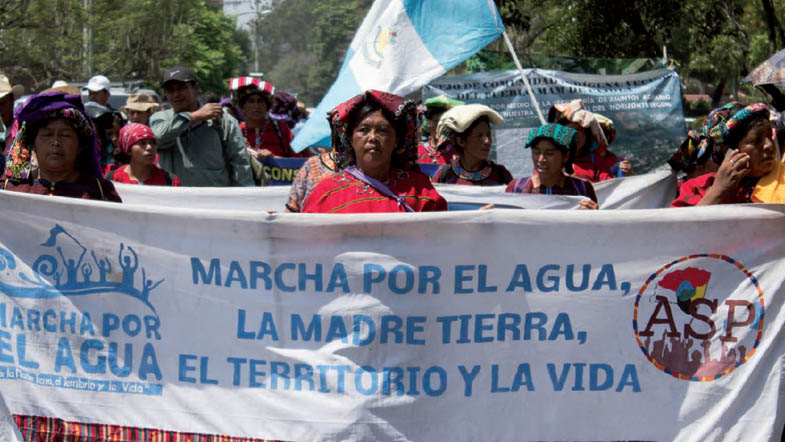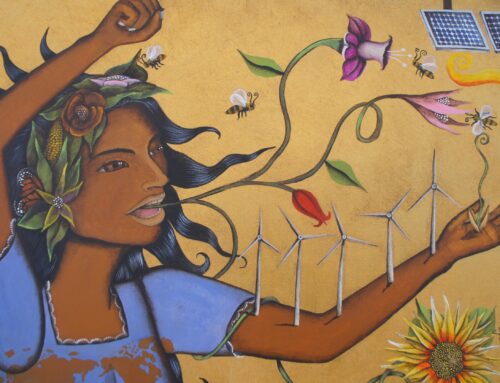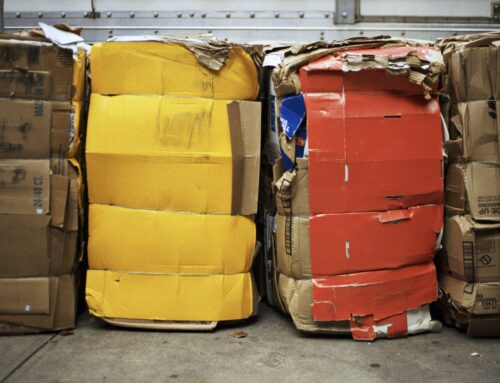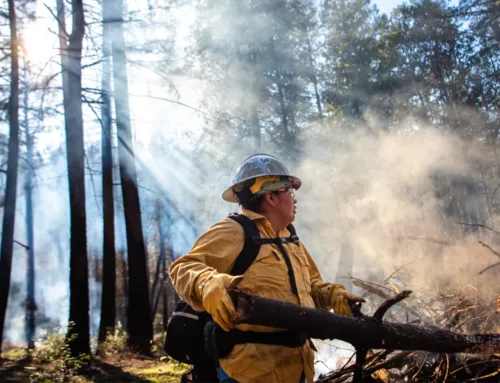Across Latin America, women human rights defenders are creatively organizing themselves as they resist the extraction of natural resources that destroys their lands and ways of life. Since the 1990s, Latin America has received the greatest foreign direct investments for the extractive sector, which has nearly destroyed entire ecosystems and communities. Watershed headwaters, the Amazon jungle, and Andean lagoons all face threats. Most of these projects are imposed on marginalized communities, thereby demonstrating the link between social and environmental violence. In response to territorial destruction, women have risen up against mining projects, dams, and monocultures, only to be met by brutal repression, criminalization, and sexual and physical violence. Some defenders, such as Berta Cáceres of Honduras, have been murdered, while others, like Lonko Juana and Machi Millaray Huichalaf of Chile, have been imprisoned. Still, despite all the obstacles they face, women have been able to temporarily stop or paralyze extractions in Guatemala, Honduras, Peru, Chile, and Argentina. They have organized autonomously and organically, and they have led collective transformations of solidarity. Photo credit: Women Human Rights Defenders International Coalition







